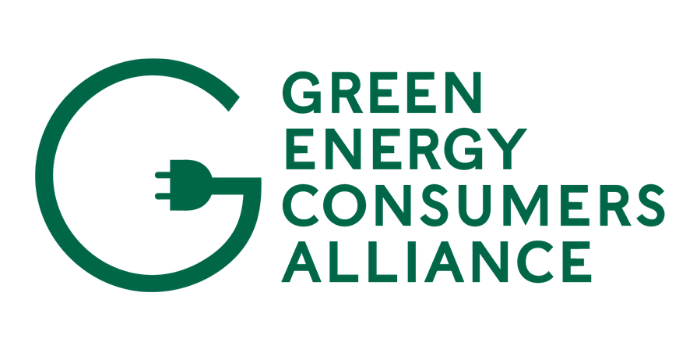The Community Charge program offers public and non-profit entities a simpler, cost-efficient way to install electric vehicle (EV) charging stations for use by their constituents or the greater public. Presented by the nonprofits PowerOptions, LISC Massachusetts, and Green Energy Consumers Alliance, with funding from the Massachusetts Clean Energy Center, Community Charge aims to make EV charging more accessible for more people across the Commonwealth.
The Offering
Community Charge reduces the administrative burden and costs for site hosts by pre-negotiating with competitively selected providers. Instead of conducting your own procurement by issuing a Request for Proposals, purchasing the state contract, or using an alternative procurement pathway such as a 30B exemption or MGL Chapter 25A, public and nonprofit site hosts have two options under Community Charge.
Vendor-Owned (Charging-as-a-Service): Stations are located on your property, but installed, owned, operated, and maintained by a competitively procured Community Charge program provider.
Host-Owned: You, the site host, own and operate the EV charging stations, but use Community Charge to either procure hardware, software, or installation “a la carte”, or procure turnkey installation services that handle all three aspects in one.
Benefits of Community Charge
- Less administrative hassle than competitively soliciting bids yourself
- Better pricing than procuring on your own, thanks to PowerOptions’ group-buying power
- Vendor-owned (charging-as-a-service) model removes the burden of operating and maintaining the stations from you, the site host
- You can offer the amenity of EV charging to your constituents or community, allowing them to make the switch to an EV and benefit from lower fuel costs, lower maintenance costs, and cleaner air
Procurement Guide
Want to dig in deeper? We’ve written a procurement guide for EV Charging. The guide answers key questions, such as:
- What are the different types of EV charging?
- What incentives can help cover the cost of installation?
- What are the benefits of hosting EV charging?
Upcoming Webinars
To learn more about Community Charge, join us at an upcoming webinar!
March 10, 2026 @ 12:00 p.m. | Click here to register
Here are the webinar slides for your review.
Frequently Asked Questions
What site hosts are eligible to participate in Community Charge?
Only sites owned by public or nonprofit entities are eligible to participate. For-profit owners of low-income housing are eligible to participate as long as the properties are owned in association with a nonprofit.
What are the costs of participating in Community Charge?
There is no cost for eligible participants to receive a consultation from PowerOptions and get connected with a participating vendor. There are no upfront costs for the vendor-owned procurement pathway; for the site-owned procurement pathway, depending on the chosen procurement option and site needs, costs may vary. However, Community Charge has pre-vetted competitive pricing for all program options.
What kinds of stations does Community Charge support?
Community Charge supports both Level 2 and DC Fast Charging stations.
What are some benefits of adding EV charging to my site?
The benefits of installing EV charging vary from earned revenue from charging sessions to increased resident satisfaction or employee retention, to greater visibility for your site with your EV charging stations on charger navigation tools such as PlugShare.
Will the stations on my property installed via Community Charge generate revenue for my organization?
For host-owned stations, it’s up to you, the site host, to determine what rate you charge station users. Depending on the electricity rate you pay, the rate you set for users, and the level of utilization, the revenue you generate may or may not be larger than the costs of running the station. Most site hosts set up the rate they charge users to break even with the costs of supplying the electricity. For the vendor-owned (charging-as-a-service) option, the owner/operator of the stations will enter into a profit-share agreement with the host.
Can I access both state and utility incentives for installing charging stations?
Both the state of Massachusetts and our electric utilities offer incentive programs for installing charging stations. However, per an order from the Department of Public Utilities, if the stations you are installing will not be publicly accessible, to apply for funding from your utility, you must (a) also apply for any available MassEVIP funding, and then (b) subtract any funding you receive from the state MassEVIP program from your award from the utility. (If the stations are publicly accessible, then you can stack state and utility funding.)
Where can I learn how to operate and maintain EV charging stations?
Your chosen EV charging station will come with a user guide that lists required regular maintenance.
Where can I learn more about EVs in general?
You can visit the Massachusetts Clean Energy Center’s electric vehicle webpages, available at: Electric Vehicle - Massachusetts Clean Energy Center.
Who are the vendors working with Community Charge?
When you email CommunityCharge@PowerOptions.org, PowerOptions will schedule an initial consultation with you. Based on your property, needs, and goals, PowerOptions will connect you with one of several pre-selected vendors.
Who do I contact for more information?
Please email CommunityCharge@PowerOptions.org.


